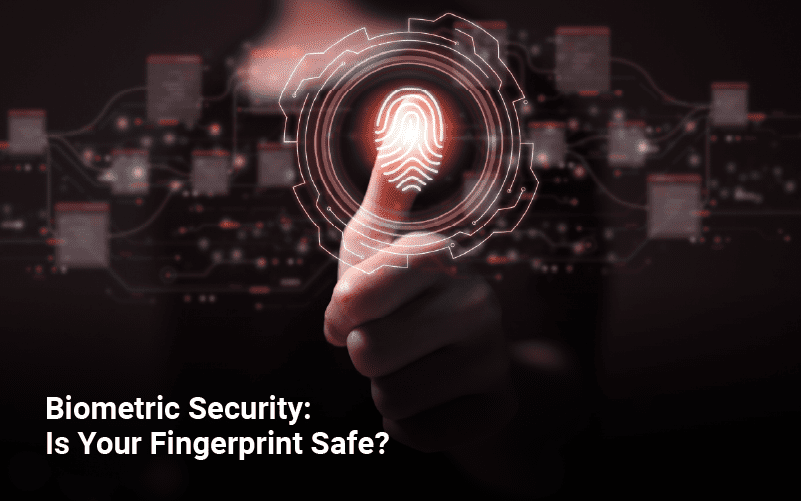QR codes have gained widespread popularity for their convenience and efficiency in accessing information, making payments, and interacting with businesses. However, with their increased usage comes the risk of QR code scams, which can compromise your online security and personal information.
Understanding QR Code Scams: QR code scams refer to fraudulent activities where criminals use deceptive QR codes to exploit unsuspecting individuals. These scams can lead to financial loss, identity theft, and unauthorized access to your personal data. It’s critical to be mindful of the risks involved and take the necessary precautions to safeguard your information.
How QR Code Scams Work and Common Tactics Used?
QR code scammers employ various tactics to deceive and exploit victims. One standard method is through malware and phishing attacks. Scammers create QR codes that, when scanned, direct users to malicious websites or phishing pages designed to extract sensitive information. Another tactic involves payment redirection, where scammers replace legitimate QR codes with their own, redirecting payments to their accounts instead of the intended recipient.
Signs that a QR code may be malicious or part of a scam?
It is essential to be cautious and look out for red flags. Suspicious QR code placement, unexpected payment redirections, or personal information requests indicate a potential scam. If something feels off or seems too good to be true, it’s better to err on the side of caution and refrain from scanning the code.
Tips to protect yourself from QR code scams:
- Verify the source before scanning a QR code. Trustworthy sources include reputable businesses, official websites, or trusted individuals. Be cautious when scanning QR codes from unfamiliar sources or unsolicited messages.
- Use a reliable and trusted QR code scanner application on your smartphone. Stick to well-known app stores, such as Google Play Store or Apple App Store, and read reviews before downloading. Avoid downloading scanner apps from unfamiliar sources.
- Visually examine it for any signs of fiddling or manipulation. Scammers may place stickers or overlays on genuine QR codes to redirect you to malicious websites or initiate unauthorized transactions. Look for misalignments or irregularities in the design.
- Be cautious when scanning QR codes that request personal details or login credentials. Legitimate organizations typically do not ask for sensitive information through QR codes. If you suspect a phishing attempt, manually enter the website URL instead of scanning the code.
- When scanning QR codes that lead to websites or online platforms, ensure you are connected to a secure network. Public Wi-Fi networks can be vulnerable to eavesdropping and data interception. Use trusted cellular data or secure Wi-Fi networks to protect your information.
- Keep your smartphone’s operating system, apps, and QR code scanner updated with the latest security patches. Updates often comprise bug fixes and security enhancements that protect against known vulnerabilities exploited by scammers. Enable automatic updates whenever possible.
- Stay informed about common QR code scams and techniques used by attackers. Awareness is key to identifying and avoiding potential threats.
- When using a QR code scanning app, review the permissions it requests. Be cautious if an app asks for excessive permissions that seem unrelated to scanning QR codes.
- Scanning QR codes that promise freebies or prizes, especially from unsolicited messages or emails, can lead to scams or phishing attempts. Exercise caution and verify the legitimacy before scanning.
How to Report QR Code Scams and Seek Help?
Take immediate action if you come across a suspicious QR code or believe you have fallen victim to a QR code scam. Report the incident to relevant authorities or consumer protection agencies in your country. Additionally, reach out to your financial institution or credit monitoring services to minimize potential damage and seek assistance in resolving any issues.
Here are some best practices to further protect yourself from QR code scams:
- Use Two-Factor Authentication (2FA): Enable two-factor authentication whenever possible, especially for financial transactions or accessing sensitive information. It adds a layer of security by mandating you to provide a secondary verification method, such as a fingerprint, facial recognition, or a unique code sent to your mobile device.
- Be Skeptical of Unsolicited QR Codes: Exercise caution when encountering QR codes sent to you unexpectedly, especially if they come from unknown sources. Scammers may use unsolicited QR codes to lure you into fraudulent schemes. Think twice before scanning a QR code you weren’t expecting or haven’t verified.
- Employ Mobile Security Solutions: Install a reputable mobile security solution on your smartphone. Anti-malware and anti-phishing applications can help detect and prevent QR code scams and provide additional layers of protection against other types of cyber threats.
- Double-Check URLs: When a QR code leads you to a website, double-check the URL to ensure it matches the legitimate website you intended to visit. Scammers may create deceptive URLs that closely resemble legitimate ones to trick users. Look for subtle variations or misspellings that may indicate a fraudulent website.
- Read Permissions and Privacy Policies: When installing a QR code scanner app or any other mobile application, carefully review the permissions it requests. Be cautious of apps that request excessive authorizations, such as accessing your contacts, messages, or other personal information. Additionally, read and understand the app’s privacy policy to comprehend how your data will be managed.
- Trust Your Intuitions: If something feels off or suspicious about a QR code or the situation in which it is presented, trust your instincts and refrain from scanning it. Your intuition can often alert you to potential scams before they transpire.
Scrutinize potential trends and emerging technologies: As technology evolves, so do the measures to enhance QR code security. Stay informed about future trends and emerging technologies that aim to improve the authenticity and security of QR codes. Advancements such as blockchain integration or biometrics may provide additional layers of protection in the future.
QR codes have evolved into a crucial element of our daily lives, but it’s crucial to be aware of the risks associated with QR code scams. Remember, a cautious approach and informed decision-making are key to safely leveraging QR codes’ benefits while keeping your personal information secure.








